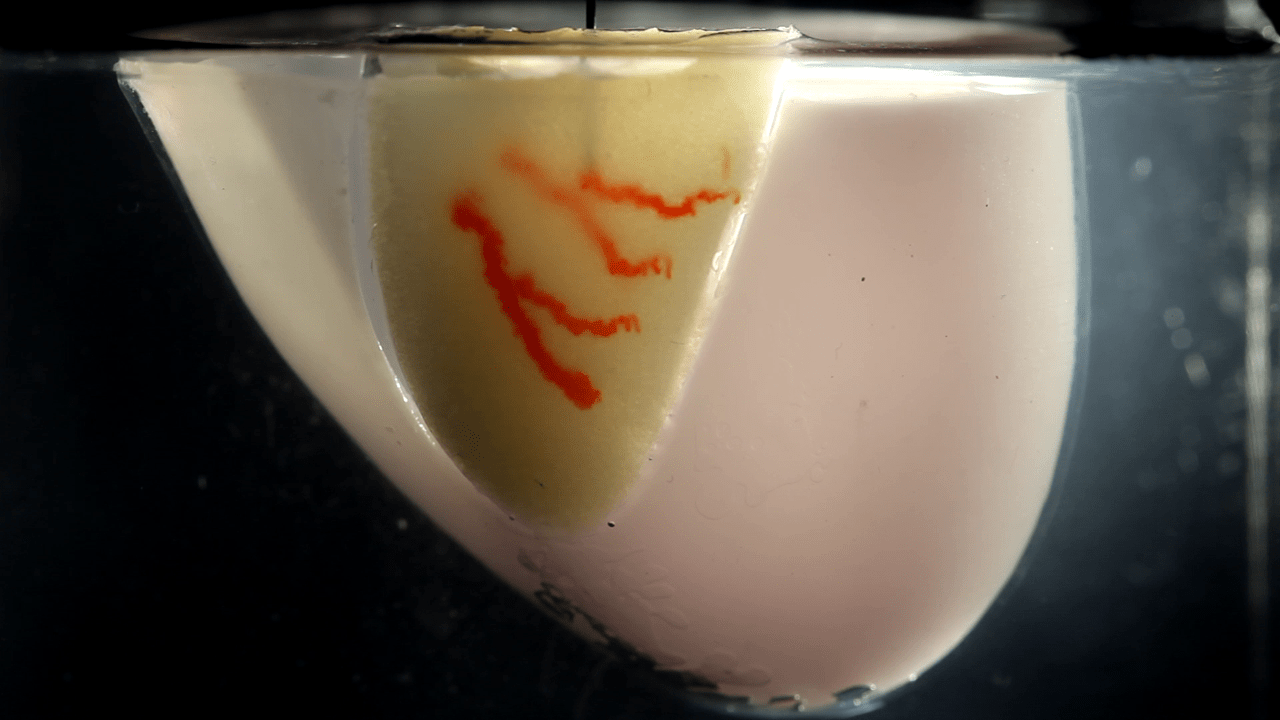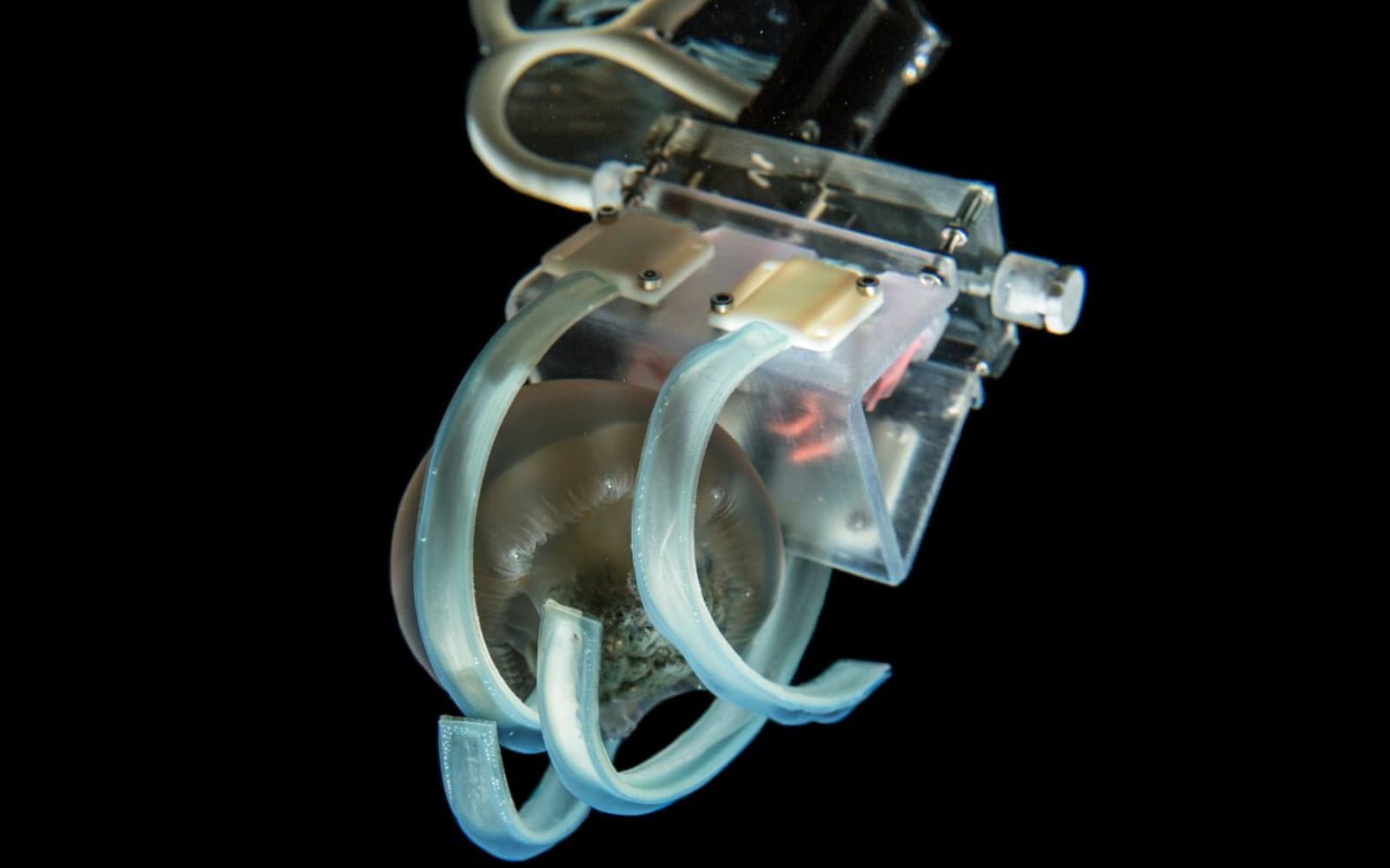Tag Archives: Wyss Institute
Harvard and Sony built a tiny surgery robot inspired by origami
This machine keeps transplant livers alive for a week
 With current technology, a human liver donated for transplant can only be kept alive for 24 hours, and often, if the liver is damaged or diseased, it cannot be considered for transplant. That could soon change. Liver4Life, a Wyss Institute project, h...
With current technology, a human liver donated for transplant can only be kept alive for 24 hours, and often, if the liver is damaged or diseased, it cannot be considered for transplant. That could soon change. Liver4Life, a Wyss Institute project, h...
Harvard scientists have found a better way to 3D print organs
 Scientists have experimented with growing organs in labs for years, but we're still years away from the technology being ready. Lab-grown organs are often too small for human use and lack an efficient mechanism for delivering oxygen. A group of scien...
Scientists have experimented with growing organs in labs for years, but we're still years away from the technology being ready. Lab-grown organs are often too small for human use and lack an efficient mechanism for delivering oxygen. A group of scien...
Harvard’s noodly robot fingers are great at grabbing jellyfish
 Robots can be a bit heavy-handed. Their forceful grip might not be a problem when they're moving boxes in a warehouse, but they can damage fragile marine creatures like jellyfish. Researchers may have a solution. They've created a robotic hand with a...
Robots can be a bit heavy-handed. Their forceful grip might not be a problem when they're moving boxes in a warehouse, but they can damage fragile marine creatures like jellyfish. Researchers may have a solution. They've created a robotic hand with a...
Harvard stores 704TB in a gram of DNA, may have us shopping for organically-grown storage (video)
Early research has had DNA making circuits and little factories. We haven't really seen DNA used as a storage medium, however, and it's evident we've been missing out. A Harvard team led by George Church, Sriram Kosuri and Yuan Gao can stuff 96 bits into a DNA strand by treating each base (A, C, G, T) as though it's a binary value. The genetic sequence is then synthesized by a microfluidic chip that matches up that sequence with its position in a relevant data set, even when all the DNA strands are out of order. The technique doesn't sound like much on its own, but the microscopic size amounts to a gigantic amount of information at a scale we can see: about 704TB of data fits into a cubic millimeter, or more than you'd get out of a few hundred hard drives. Caveats? The processing time is currently too slow for time-sensitive content, and cells with living DNA would destroy the strands too quickly to make them viable for anything more than just transfers. All the same, such density and a lifespan of eons could have us turning to DNA storage not just for personal backups, but for backing up humanity's collective knowledge. We're less ambitious -- we'd most like to know if we'll be buying organic hard drives alongside the fair trade coffee and locally-sourced fruit.
Harvard stores 704TB in a gram of DNA, may have us shopping for organically-grown storage (video) originally appeared on Engadget on Sun, 19 Aug 2012 01:06:00 EDT. Please see our terms for use of feeds.
Permalink ExtremeTech |
ExtremeTech |  Harvard University | Email this | Comments
Harvard University | Email this | Comments Alt-week 7.28.12: social mathematics, Pluto’s moons and humans-on-a-chip
Alt-week peels back the covers on some of the more curious sci-tech stories from the last seven days.
It's a beautiful world we live in. And, while the sweet and romantic part is debatable, strange and fantastic is not. Our universe is one populated by non-planetary celestial bodies with their own non-planetary satellites, high school social hierarchies based on predictable mathematical formulas and military-funded "gut-on-a-chips." It's a weird place filled with weird stories, and we just can't get enough of it. So, what has the last seven days brought us from the fringes of science and tech? Keep reading after the break to find out. This is alt-week.
Continue reading Alt-week 7.28.12: social mathematics, Pluto's moons and humans-on-a-chip
Filed under: Peripherals, Science
Alt-week 7.28.12: social mathematics, Pluto's moons and humans-on-a-chip originally appeared on Engadget on Sat, 28 Jul 2012 20:30:00 EDT. Please see our terms for use of feeds.
Permalink | | Email this | Comments
